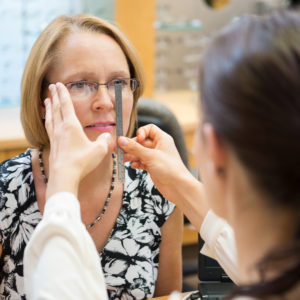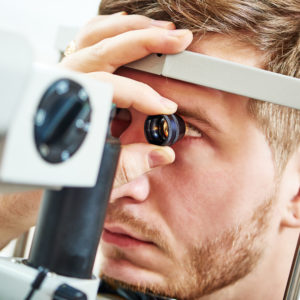Working While in Optometry School

A job outside of optometry school can be stressful. Working at a private practice takes time, energy, and focus away from studies while in school. Can it possibly be worth it? I talked with a few fellow optometry students about their experiences. It was easy to come up with many reasons why working as a student provides a myriad of benefits.
Learning Opportunities
My favorite aspect of working in a private practice has been the learning opportunity and experience. I learned so much through working with doctors who were willing and able to teach.
One of the things I noticed was how deeply doctors care about the future of the profession. They are excited to teach, equip, and invest in the future of optometry. Because of this, I have been shown and taught more than I ever expected.
Among other things, I have had the opportunity to see many ocular disease examples. I saw post-ops of a wide variety, kerato conus cases, and almost every kind of contact lens fit. Additionally, employment at a private practice has allowed me to practice with a variety of different diagnostic instrumentation and clinical tools.
One of the doctors I work for even stayed after work on a Saturday to teach us how to use a BIO. After talking with some of my classmates, this benefit of private practice employment as a student is a resounding favorite and seems to be true of most practices.
Getting a behind the scenes look at the business and management aspect of a practice

This benefit was not one I expected when I first began working. I was aware that this was very much a large part of a private practice. However, I was not sure how much insight I would gain or have access to as a student.
However, the owner of the practice, as well as the other doctors, have been open and willing to teach about the details regarding insurances, benefits packages, contract negotiations, IT updates, and troubleshooting.
We are mostly trained in patient care in optometry school. There is an equally important business component to owning a private practice. This is something that takes time and real world experience to learn. Outside of clubs and personal experience, many students get their first taste of private practice in their fourth year rotations. Why not get a jump start in learning about it now?
Getting to see a wide scope of practice
Working in a private practice, especially with multiple doctors, allows you to observe a very wide scope of practice compared to some commercial practices. Though the doctors do refract every patient annually, they are also managing a variety of ocular conditions along the way. It made a difference in seeing these conditions in tandem with learning about them in school.
Learning to communicate one-on-one with patients
Communication is one of the most critical and valuable takeaways from working at a private practice. My experience as a student technician has given me ample one-on-one time with patients before ever entering my clinical rotations in school.

This experience has given me confidence in these interactions, an appreciation for working with the public, and experience in interacting with many different personalities. Working day in and day out with human beings is truly one of the best parts of the career of optometry. It is also an aspect that can be extremely challenging at times. Learning to treat and care for each individual patient the way they prefer to be cared for is something that can take a lifetime to learn.
Observing multiple styles of practice
Many private practices have more than one doctor employed. There is a great opportunity to observe differing approaches to practice. As a student technician, I have had the privilege of working at an office with four full time doctors. As a result, I have had the opportunity to see a variety of very different styles of care and communicative techniques.
What I Learned Through Working

Through these doctors, I have learned how to balance professionalism with fun, efficiency with patient listening and how to treat each person individually. In observing their communication styles, I have been able to make mental note of some of the best approaches to treating patients and have seen a variety of patient-doctor relationships.
In addition to communication, these doctors differ in their techniques, preferred methods, and treatment strategies. Even their refraction techniques are unique to each of them. Most importantly, I have had the opportunity to see how integral an optometrist can be in someone’s life and how each of these doctors impacts the daily lives of their patients.

